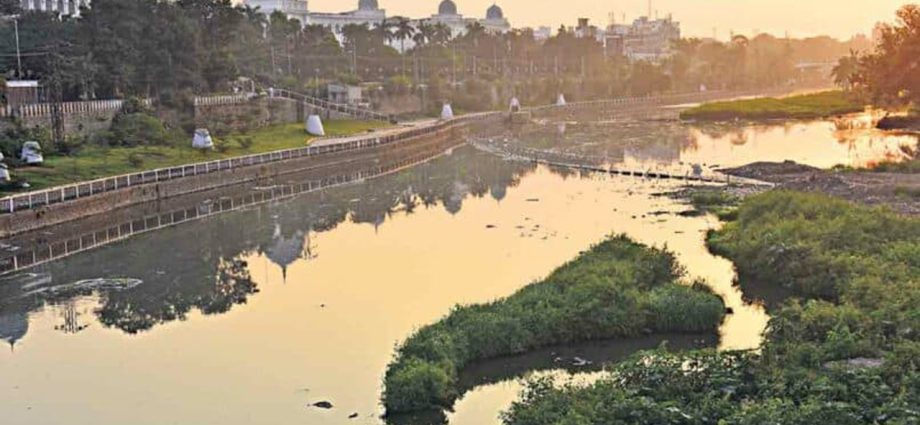By Matters India Reporter
Hyderabad, Oct 31, 2024: More than 100 activists, environmentalists and academics from across India on October 31 called for a comprehensive review of a project that threatens to displace the poor living on the banks of the Musi River in the southern Indian state of Telangana.
Their demand came a day before Telangana Chief Minister A Revanth Reddy is scheduled to inaugurate the 15-billion-rupee project to develop a 55-km stretch of the River Musi.
Earlier in September, the chief minister had said the estimated cost included work on the Regional Ring Road, expansion of the Metro Rail and for developing pharma villages.
The National Forum of Urban Struggles of the National Alliance of People’s Movements, in a statement, questioned the government’s haste in implementing the project that will demolish 10,600 homes and buildings of poor working people.
They alleged that the government has gone ahead with the project even before the detailed project report (DPR), clearances and rehabilitation policy are published.
The activists demanded that the “Musi River Rejuvenation” should not be a project of mega displacement, land grab and privatization. “Project should not be hurried without DPR, all legal compliances and clearances, resettlement and rehabilitation Policy, public consultations,” they asserted.
They want to ensure the ecological free flow of the Musi River by ending industrial, municipal pollution and “not by commodification of urban commons or diversion of forests, farm lands for mega projects.”
They opposed arbitrary and unjust evictions and demolitions and upheld the rights to dignified housing, livelihoods, education, democratic participation of all Musi residents.
Recalling that the state’s Congress government came to power in Telangana promising socially just and inclusive governance, the activists asserted that the Reddy regime should demonstrate the same in practice. “Any river rejuvenation should be in a manner that does least harm to the commons and riverine population, avoiding unnecessary eviction and land acquisition, especially for commercial interests,” they said.
The statement emphasizes that the Musi River rejuvenation project should inflict the least harm to the commons and the riverine population, avoid unnecessary evictions and land acquisitions, and should not be conducted for commercial purposes
The signatories to the statement included Soumya Dutta, K. Babu Rao, Lalita Ramdas, Medha Patkar, Prafulla Samantara, Jasveen Jairath, Sanjay MG, Neelam Alhuwalia, Presentation Sister Dorothy Fernandes, Montfort Brother Varghese Theckanath and Jesuit Father Walter Fernandes.
Other signatories are Professors Rama Melkote, Padmaja Shaw, Madhu Prasad, and Aisha Farooqui, among others.
The Musi River is a major tributary of the Krishna River in the Deccan Plateau, flowing through Telangana. Hyderabad stands on the banks of the river that divides the historic Old City from the new city. The Musi River flows into Himayat Sagar and Osman Sagar, artificial lakes that act as reservoirs that once supplied the twin cities of Hyderabad and Secunderabad with drinking water.
The first Musi River Project was started in 1954 and ended nine years later. The project was designed to irrigate 41,000 acres, but this was reduced to 30,000 acres after 1973. The project covered 41 villages in 6 mandals of Suryapet and Nalgonda.











